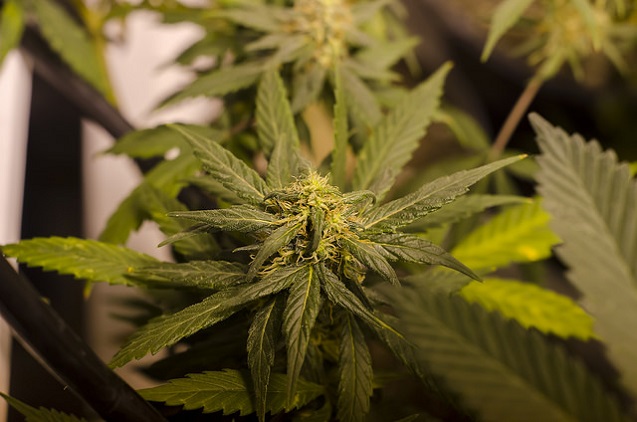
Did you know that Truthout is a nonprofit and independently funded by readers like you? If you value what we do, please support our work with a donation.
The attorneys general of Nebraska and Oklahoma have launched a lawsuit against Colorado claiming the state’s 2012 voter initiative legalizing, regulating, and taxing marijuana is causing marijuana to come into their states, creating a public nuisance and consuming law enforcement resources.
Leaving aside the fact that states, and for that matter the federal government, cannot force states to criminalize marijuana, the lawsuit gets things backwards – it is Nebraska, Oklahoma and other states with marijuana prohibition that are creating a public nuisance.
As anyone who has ever taken an economics class knows, demand drives supply. If people want something, someone somewhere will make it and sell it to them. The U.S. has spent decades trying to stop marijuana and other drugs but the demand for them, like the demand for alcohol during Prohibition, ensures that they are widely available.
Nebraska and Oklahoma were awash with marijuana before Colorado and three other states legalized marijuana. And marijuana will be widely available in their states regardless of what policies Colorado and other states set.
The debate over marijuana legalization is not about whether people should use or sell marijuana, millions already are. The debate is about who should control the marijuana trade – drug cartels or regulated business owners – and where should the proceeds from marijuana sales go – to organized crime bosses or government coffers, for machine guns and hit men or education and treatment.
Colorado has chosen to take marijuana off the streets and control it through a regulated system where young people do not have access. Nebraska and Oklahoma have chosen to let criminal organizations decides where marijuana is sold and who it is sold to.
One of Nebraska’s complaints is that they are forced to spend law enforcement resources dealing with marijuana, but they would be doing that regardless of what kind of marijuana policy Colorado set. As long as there is a demand for marijuana in Nebraska, there will be a supply.
And of course, Nebraska does not have to waste law enforcement resources on marijuana. Colorado voters adopted marijuana legalization in part because they wanted to stop wasting law enforcement resources filling jails and prisons with nonviolent offenders. Nebraska could make money instead of wasting money if it followed Colorado’s lead.
Legalization and regulation bring control. Colorado has 500 pages of marijuana law and regulations that include mandatory state and local licensing, background checks, financial disclosures, video surveillance, alarm systems, seed-to-sale tracking, RFID tags, child-resistant packaging, labeling, and testing.
In contrast, policymakers in Nebraska, Oklahoma, and other states where marijuana is prohibited have no control over marijuana, its use, production or distribution.
It is marijuana prohibition that is the real nuisance. It is is costly and dangerous to Nebraskans and neighboring states.
A terrifying moment. We appeal for your support.
In the last weeks, we have witnessed an authoritarian assault on communities in Minnesota and across the nation.
The need for truthful, grassroots reporting is urgent at this cataclysmic historical moment. Yet, Trump-aligned billionaires and other allies have taken over many legacy media outlets — the culmination of a decades-long campaign to place control of the narrative into the hands of the political right.
We refuse to let Trump’s blatant propaganda machine go unchecked. Untethered to corporate ownership or advertisers, Truthout remains fearless in our reporting and our determination to use journalism as a tool for justice.
But we need your help just to fund our basic expenses. Over 80 percent of Truthout’s funding comes from small individual donations from our community of readers, and over a third of our total budget is supported by recurring monthly donors.
Truthout has launched a fundraiser, and we have a goal to add 231 new monthly donors in the next 48 hours. Whether you can make a small monthly donation or a larger one-time gift, Truthout only works with your support.